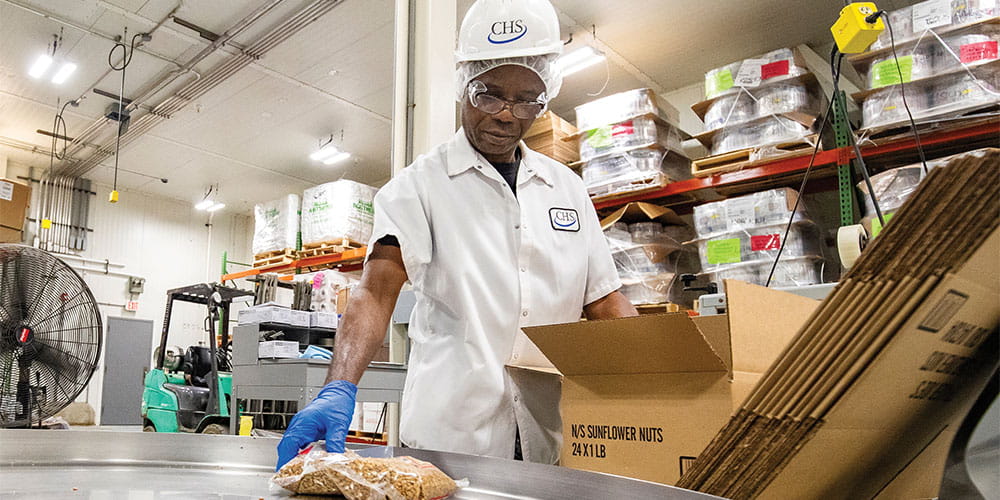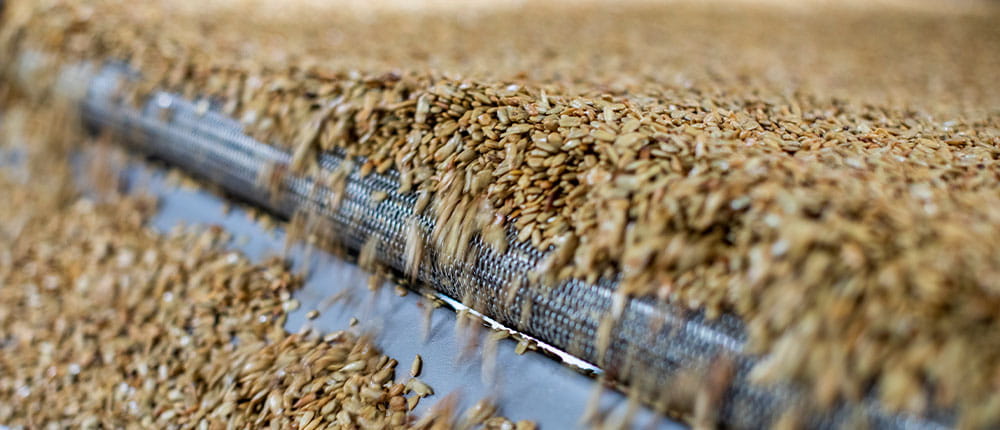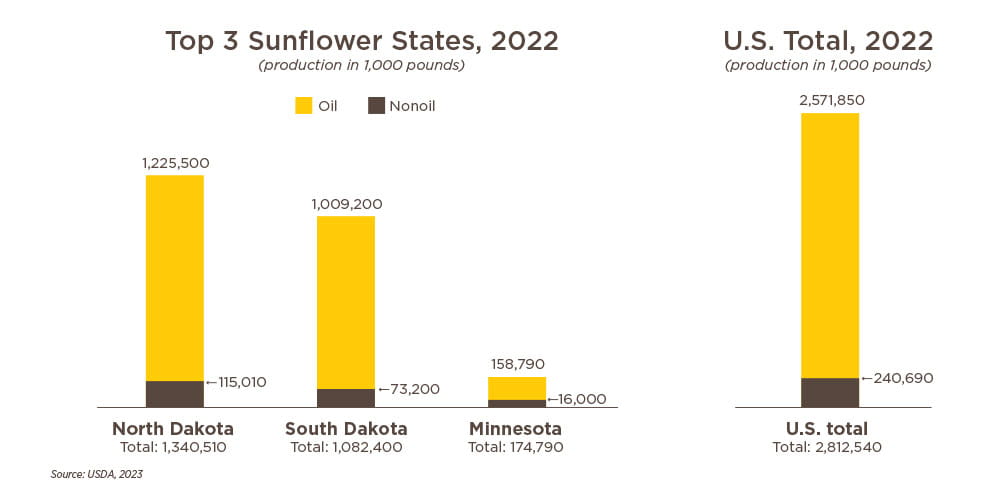Kids digging into their school lunches, shoppers at a major U.S. grocery chain and consumers in Greece eating a favorite tasty snack have something in common: They’re all enjoying sunflower seeds grown by CHS farmer-owners and processed at CHS facilities.
In a typical year, CHS farmer-owners grow about 40,000 to 50,000 acres of confection seeds — the edible kind sold as snacks or ingredients in the shell or as kernels — as well as about 5,000 acres of conoil seeds, a cross between oil seeds (which are used for sunflower oil and birdseed) and confection seeds.

Potential profits in sunflower production and processing
Sunflowers can be challenging to grow, but the crop can also be profitable, says Craig Hertsgaard, a fifth-generation farmer in Kindred, N.D., who’s been rotating sunflowers with corn, soybeans and sugar beets for about 10 years.
“Because sunflowers are a minor crop, there hasn’t been much research in developing products for weed control and disease control,” he says. “So we have to develop a system for planting them at a time when we can control weeds early and during the growing season.”
Hertsgaard says he appreciates the quality and consistency of CHS Royal Hybrid® sunflower seed. “The varieties are well adapted to the soils we have in the Red River Valley,” he says. “The equipment we use to plant sunflowers is very sensitive to seed quality and sizing, and CHS is able to produce a product that works well in our planting equipment.”
CHS is the only major sunflower processor that maintains its own hybrid seed division, complete with nursery, greenhouse and laboratory facilities staffed by seed genetics experts. Those experts put thousands of hybrids through rigorous lab tests and field trials each year to select the most desirable characteristics based on customer input and market demand — for example, rich flavor, firm kernels, large size, unique shape, improved yields and high quality.
Sunflower seeds are not genetically modified, which is important when selling into European markets that ban GMO crops, says Devin Gaugler, origination manager and agronomist for the CHS sunflower business.
Gaugler says the farmers he supports appreciate having sunflowers in their rotation because the plants thrive in dry conditions. They also root deeply enough to recover nutrients that shallow-rooted crops like wheat and soybeans didn’t use the previous year. “A sunflower will tap into that deep nutrient load,” he says. “That gives you some cost savings.”
Learn more about growing, buying and processing sunflowers.

Prepping and processing sunflower seeds
After Hertsgaard and other contracted farmers harvest and dry their sunflower seeds, they deliver them to the CHS processing facility in Grandin, N.D. There, the seeds are dried, cleaned and sized. The largest seeds are generally sold as inshell seeds, while medium-sized seeds are hulled for the kernel market and the smallest seeds are used in birdseed and pet food.
Once they’re cleaned and sized, some sunflower seeds are sent straight to domestic and international customers who do their own processing, while others go to the CHS facility in Fargo, N.D., for pasteurization, oil roasting and dry roasting.
Dean Hjelden, who manages the Fargo plant, describes the facility’s pasteurization process as “very state-of-the-art, very modern.” Cocoa bean roasting equipment from Holland was modified specifically for the CHS sunflower processing plant. “The equipment was designed for gentle handling,” Hjelden says. “It provides thorough pasteurization without compromising the texture, quality, color or taste of the sunflower seeds.”
About 80% of the seeds are sold to domestic customers and 20% are exported — mainly to Spain and Greece. About 85% are sold in-shell for roasting and flavoring, while 15% are sold as kernels with the shells removed for snacks or as a food ingredient.
What makes CHS unique, says Gaugler, is attention to the product through the whole journey from breeding seeds to finding markets.
“We breed the seed, we produce the seed, we support farmers who grow it, we bring it in and we process it,” he says. “Sometimes farmers are hesitant to do business with specialty crop processors because of the unpredictability of today’s marketplace. At CHS, growers can be assured they have the backing and resources of the entire enterprise to help them do everything possible to grow a high-quality crop and maximize their returns.”







